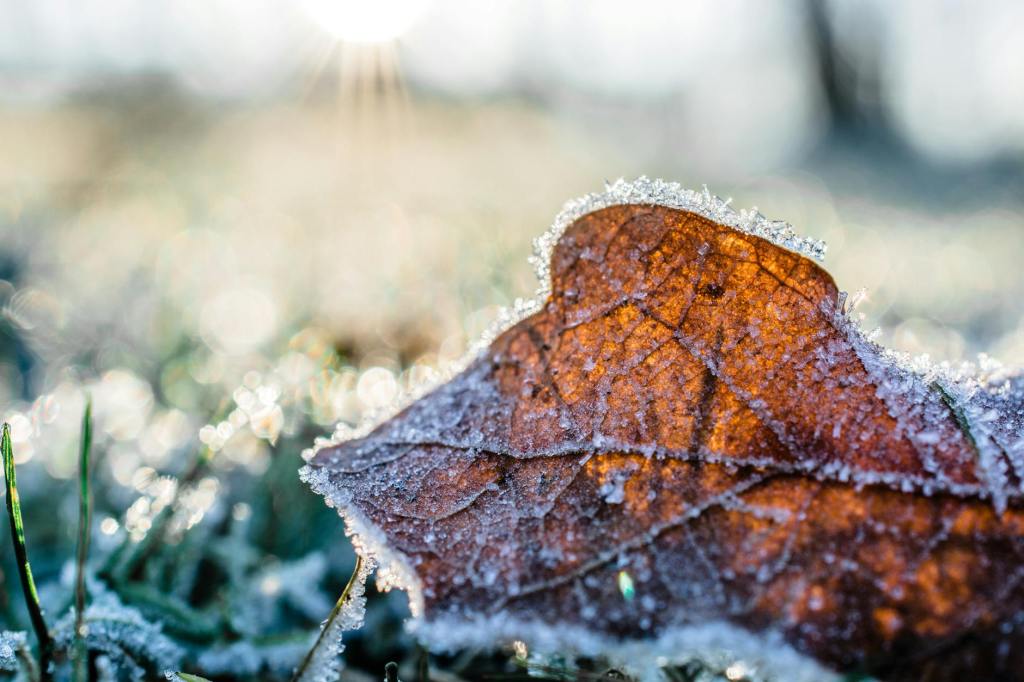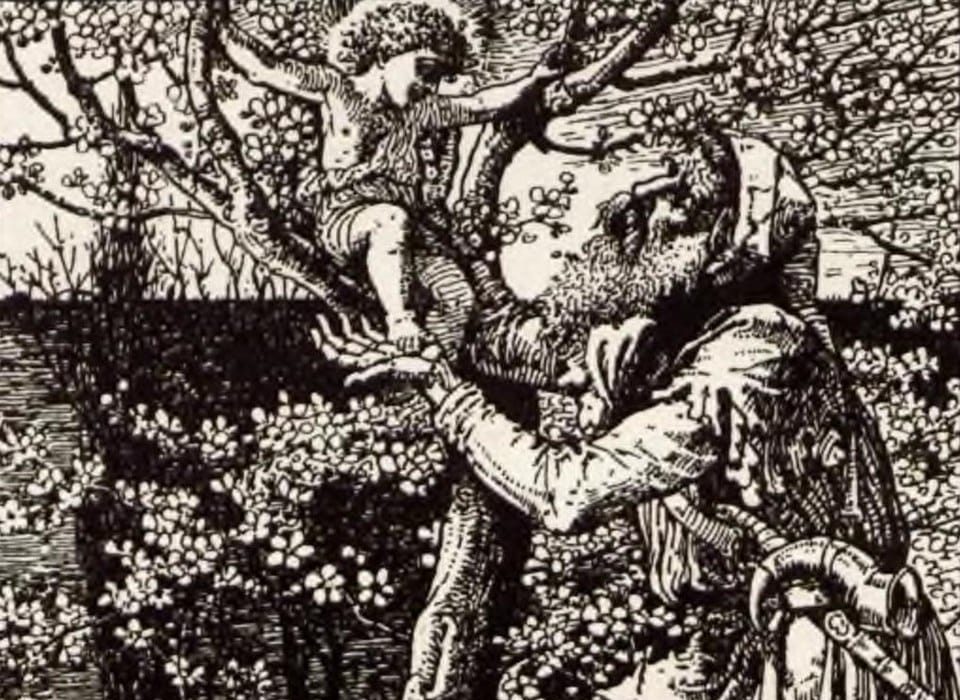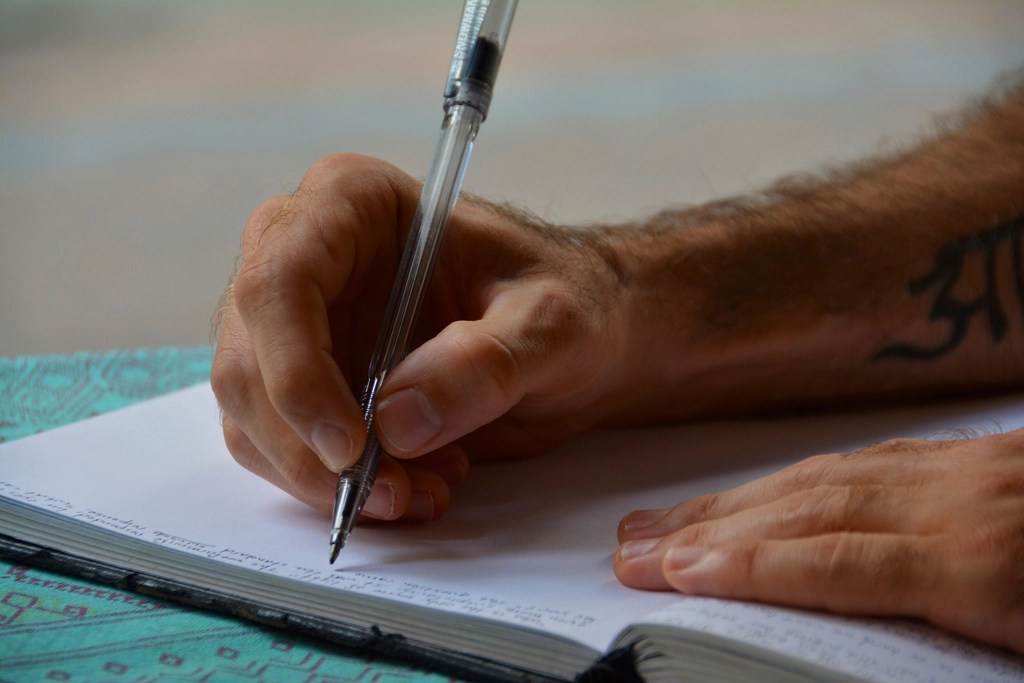In Michigan, a certain feeling fills the air in the autumn months that is nearly indescribable. It is the feeling of aging and nostalgia, of cold nights from before, and it’s the feeling of all things coming to an end. Such a backdrop is perfect for examining the metaphorical loss in Hemingway’s short story “The Three-Day Blow.” For this post, we are going to discuss Hemingway’s short story as it relates to this ending and how the permeation of Michigan fall make that feeling all the more tangible, real, and emotional.
Summary of “The Three-Day Blow”
In Hemingway’s “The Three-Day Blow,” we meet the contemplative Nick Adams, who is visiting a friend, Bill, in Northern Michigan. The atmosphere is somewhere near late fall. For a story about a break-up, it’s the perfect setting. As Hemingway describes, the “fruit had been picked and the fall wind blew through the bare trees” (Hemingway). The two friends spend time drinking and talking, the conversation veering from literature to relationships. All the while, Nick gets drunker and thinks on his own feelings and appearance. Coming through the kitchen, he knocks down a pan and some soaking apricots, but puts it all back together, remarking on his own practicality.
Afterward, Nick begins to address the loss of a recent romance that troubles him. His disappointment is palpable and he tries to reconcile his breakup through reflection and male bonding. “Nick said nothing. The liquor had all died out of him and left him alone … All he knew was that he had once had Marjorie and that he had lost her. She was gone and he had sent her away. That was all that mattered” (Hemingway). In the end, Nick overcomes his emotional loss and realizes that it wasn’t important anymore.
Hemingway writes, “The wind blew it out of his head.”

Analysis
Metaphorical Loss
This is a story of loss and the end of a relationship. However, it addresses the story not in a straightforward, hum-drum way, but only has Hemingway can, steeped in metaphor. Considering that Hemingway plays an important role in the modernist movement, his writing particularly addresses loss and PTSD. I would argue that he dips his toes in the theme of futility as well. This short story has both of these elements throughout.
As mentioned before, the story starts with the fall wind greeting the protagonist Nick Adams. Hemingway’s remark that the “fruit had been picked,” only means that the season has come to an end. This loss is coupled with the inevitability of the end, perhaps a reference to the two aforementioned themes. Moreover, Nick stoops to grab a Wagner apple that lay “shiny in the brown grass,” and that tells the reader that the environment has turned toward winter. Yet, the juxtaposition is one that is sweet with the bitter reality of death.
In the next paragraph, Hemingway writes, “The big trees swayed far over in the wind as he watched. It was the first of the autumn storms.” The weather has turned, much like the surroundings, for the worse. Hot and cold air has come to greet each other before the permanent turn toward winter. The freezing cold is on its way and the frigid ending of winter is on its way.
As it relates to the story thematically, Hemingway is trying to tell us that the climate has a parallel to Nick Adam’s troubles. The autumn is over and therefore life is over. The green has turned to grey, the rain has come in ahead of the snow, and the fruit has been picked. Likewise, his relationship with Marjorie, his longtime girlfriend, is over. The season may seem like merely a backdrop, but it is so much more representative of the secret grief Adams is facing, even though he doesn’t understand that it’s happening.
Desertion
Continuing, Nick couldn’t get into the story of Feverel, even though it is about a man’s wife deserting him, just as Marjorie has deserted Nick. Or so he perceives it. As for “Forest Lovers,” a possibly fictitious book, the title itself suggests the pastoral nature of Nick’s venture to the cottage to see Bill and his failed relationship with Marjorie. Is Nick and Marjorie’s relationship not akin to “forest lovers” in a way? While the rural and serene environment of the end of autumn is wonderfully beautiful, anybody in Michigan can tell you that it’s haunting.
Nick’s drunken attitude also reflects loss in that he no longer recognizes the person he was while he was with Marjorie–he has changed. As he moves back to the living room, “he passed a mirror in the dining room and looked into it. His face looked strange … It was not his face but it didn’t make any difference” (Hemingway). That is to say, the person who once existed, the one who dated and loved, was now a different person–both a lost person and a person at a loss.
Conclusion
Hemingway’s “The Three-Day Blow” is an excellent story. Not only does it capture the feelings of loss, but it also captures a specific time and place that can be difficult describe: Northern Michigan in the autumn. As such, the metaphorical loss in Hemingway’s “The Three-Day Blow” deepens when it is contrasted with the dying landscape of Northern Michigan.
Moreover, Hemingway’s story captures drinking with friends and the confusion of a breakup. As such, the execution of a story of loss is expertly done, and intentionally so, as the themes of futility, loss, and PTSD act as layers of metaphor to further demonstrate Nick’s feelings toward his own depression and unhappiness. In the end, he moves on with his life, and walks out into the dying landscape around the cottage.





Leave a comment